
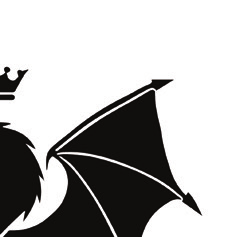
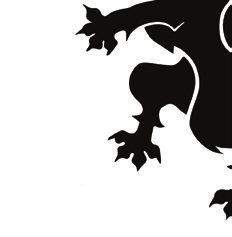
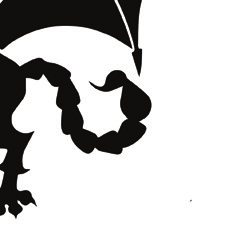 Churchills Headmaster The Sadist Who Nearly Saved the British Empire Edward Dutton Churchil s Headmaster: The Sadist Who Nearly Saved the British Empire Edward Dutton Manticore Press, Melbourne, Australia, 2019. All rights reserved, no section of this book may be utilized without permission, except brief quotations, including electronic reproductions without the permission of the copyright holders and publisher. Published in Australia. Thema Classification: NH (Histories), 1DDU (Britain) 978-0-6484996-3-3 m a n t i c o r e p r e s s www.manticore.press ... he was, I think, kind-hearted on the whole. Roger Fry, on Churchil s headmaster. In memory of Dr Tony Harvey (1945-2010). Contents List of Illustrations
Churchills Headmaster The Sadist Who Nearly Saved the British Empire Edward Dutton Churchil s Headmaster: The Sadist Who Nearly Saved the British Empire Edward Dutton Manticore Press, Melbourne, Australia, 2019. All rights reserved, no section of this book may be utilized without permission, except brief quotations, including electronic reproductions without the permission of the copyright holders and publisher. Published in Australia. Thema Classification: NH (Histories), 1DDU (Britain) 978-0-6484996-3-3 m a n t i c o r e p r e s s www.manticore.press ... he was, I think, kind-hearted on the whole. Roger Fry, on Churchil s headmaster. In memory of Dr Tony Harvey (1945-2010). Contents List of Illustrations
Acknowledgements
13
1.TheDemonHeadmaster? 15 Monday Morning in the School Library, February 1883 The Nuts and Bolts of History The Churchill Myth Factor The Fall and Rise of Public Schools An Old Perv? The Way Ahead Some Truly Dreadful Teachers The Talented Mr Sneyd-Kynnersley?
2.
Aristocratic Background, School Days and Cambridge35 St Georges Day, 1848 Ancient Ancestry 36 Joseph Sandars and a Difficult Year for the Family Sneyd-Kynnersleys Father 46 The Spinster Crisis and Evolutionary Psychology The Elderly Archdeacon of Wiltshire and Clergyman-Tutors Rugby Under Frederick Temple Cambridge University and Scholarship What Is Intelligence? Tractarianism and Irreverent Debates 3. A Man Among Boys...67 Assistant Master in Slough 67 A Rumpus at Rugby Life at Aldin House Sunninghill House and St Georges, Ascot A Clerk in Holy Orders and a Tory Activist Death and Mid-Victorian Health Problems Picturing the Headmaster The Death of the Sneyd-Kynnersleys of Loxley Park 4. Life at St Georges and Sneyd-Kynnersleys Behaviour85 An Innovative School Sir Edmund Backhouse Backhouses Memories of the Masters Churchil s Experience: How I hated this school... Roger Frys Trauma Sarah Fergusons Ancestor: The Boy Flogged Until He Excreted Freely? Maurice Barings Time at St Georges Barings Views on Sneyd-Kynnersley Behaving Foolishly The Decline of St Georges, Ascot The Decline of St Vincents, Eastbourne Count Harry Kesslers Inspiration Aubrey Jays Extremely Good Teacher Brief Recollections: Arthur Bonham Carter and Claude Schuster 129 5. How Reliable are Sneyd-Kynnersleys Former Pupils?133 Backhouse the Fantasist Whos Afraid of Virginia Woolf? How Reliable is Roger Fry? Snobbery and Intellectual Inferiority Frys Fondness for Hyperbole Flogging to the Point of Bleeding How Reliable is Winston Churchill? What Do the Reliable Sources Tell Us? 6. . . .
Churchil s Illnesses and Mrs. Everests Intervention 9. Hero of the Empire? 209 Another Churchill Biography The Psychology of Churchil Churchill Before the War 213 Churchil s Finances Churchil s Alcoholism Churchil s Syndrome War Monger 10. The Unnecessary War and the Col apse of the West 229 Pat Buchanans Churchill, Hitler and the Unnecessary War 229 Churchill the Barbarian The Death of the West The Cycle of Civilization Churchil s War and the Winter of Civilization 11. Never, never, never give up 245 Communion at the Altar The Early Church and Evangelicals The Victorian Feeling of Gloom Getting the Balance Wrong Come Friendly Bombs and Fall on Slough... References By the Same Author Index of Names 295 List of Illustrations 1. 2. 2.
Loxley Hall (Courtesy of Mrs Katherine Cox). 3. Charles Sylvester, Joseph Sandars and George Stephenson by Spiridione Gambardel a (Courtesy of the Liverpool and Manchester Railway Trust). 4. The Sneyd-Kynnersley Coat of Arms (Courtesy of Mrs Katherine Cox). 5.
Thomas Clement Sneyd-Kynnersley by Henry Turner Munns (Courtesy of the Birmingham Museums Trust). 6. North Gate, Salisbury (Wikipedia Commons). 7. The Rev. Douglas Macdonald (Macdonald & Macdonald, 1904) 8.
Frederick Temple by James Russell and Sons (Wikipedia Commons). 9. Trinity College, Cambridge (Wikipedia Commons). 10. Queensmere, Slough (Wikipedia Commons). 11.
Aldin House, Slough (Courtesy of Mr Adrian Giddens of the Datchet Vil age Society). 12. Thomas Alfred Sneyd-Kynnersley (Courtesy of Mrs Patricia Hunt of Reefton, New Zealand). 13. St Georges, Ascot (Courtesy of Mrs Susan Van der Veen). 14.
Thomas Jex-Blake by John Everett Mil ais (Wikipedia Commons). 15. Charles Walter Sneyd-Kynnersley (Courtesy of Mr Winson Saw). 16. Herbert William Sneyd-Kynnersley (Courtesy of Mr Michael Kousah). Churchil s Headmaster 17.
Herbert Sneyd-Kynnersleys Gravestone (Courtesy of Mr Brian Bence) 18. Sir Edmund Backhouse (Wikipedia Commons - Hungary). 19. Roger Fry. Self-Portrait (Wikipedia Commons). 20.
St Georges, Ascot (Photograph by the author). 21. Maurice Baring (Sketch by the author). 22. The Rev. 23. 23.
Aubrey Jay, OBE (Courtesy of the Hon. Peter Jay). 24. Arthur Bonham Carter, KC (Courtesy of the Warden and Scholars of Winchester College). 25. Richard Blagrove (Courtesy of Mr.
Robert Gaskins). 26. Winston Churchill (Wikipedia Commons). 27. Harry Kessler (Wikipedia Commons). 28.
Claude Schuster by Alfred Ward (Courtesy of Mr. Luke Hughes). 29. Chartwell (Photograph by the Rev. Mirjami Dutton). 30.
The View from Chartwell (Photograph by the Rev. Mirjami Dutton). 31. Bottlescape by Winston Churchill (Photograph by the Rev. Mirjami Dutton). Acknowledgements I would like to thank a rector, theologian and amateur Churchill historian, who wishes to remain anonymous, who has kindly read through and commented on earlier drafts of this manuscript.
In addition, I wish to acknowledge the assistance of my wife, the Rev. Mirjami Dutton, for taking me to Ascot, Chartwel , Slough, Eastbourne, and other places relevant to this book, and taking many photographs. I am grateful to the fantastical y enthusiastic and extraordinarily helpful Mr Michael Kousah, of Ely Books, who managed to locate what seems to be a photograph of Herbert Sneyd-Kynnersley; the Hon. Peter Jay, who sent me parts of his grandfathers unpublished memoir as well as photographs of him; the Rt. Hon. The Lord Jay of Ewelme for sending me extracts from his grandfathers diary; the Rev.
Christopher Turner who sent me an unpublished English translation of Harry Kesslers memoir and provided a valuable interview; the late Mrs Barbara Marke, who gave me a useful interview; Mrs Liz Moloney of the Eastbourne Local History Society who kindly assisted with my research on H. Martin Cooke, sent me her article about him, and drew my attention to an auction of Sneyd Kynnersley family heirlooms; Mrs Susan Van der Veen, Alumnae Officer at St Georges, Ascot, who scoured the schools archives for me; Dr Laird Easton, biographer of Harry Kessler, who answered my various questions; Miss Helena Brackenridge, WS, for her help with legalese; Dr John Smith, Archivist of Rugby School, who checked through relevant editions of The Meteor; Mr Winson Saw, local historian of George Town, Penang, Malaysia, for providing a photograph of Charles Walter Sneyd-Kynnersley and for his helpful correspondence; and Dr Mikko Lhdesmki for his medical opinion regarding the Cooke family. Churchil s Headmaster
Next page
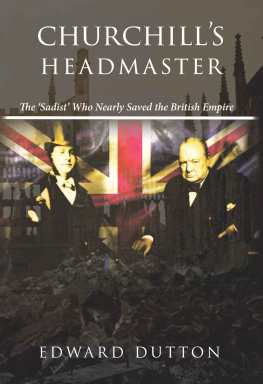
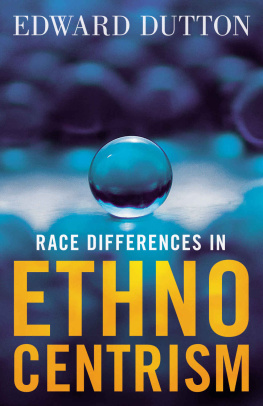
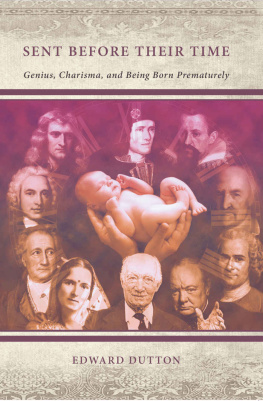
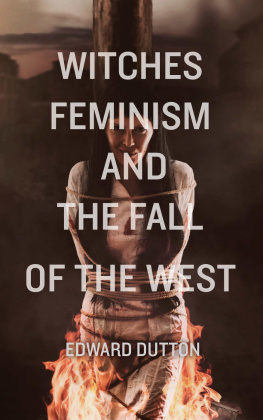
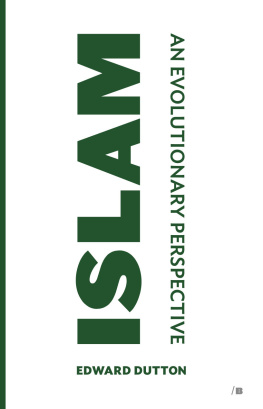
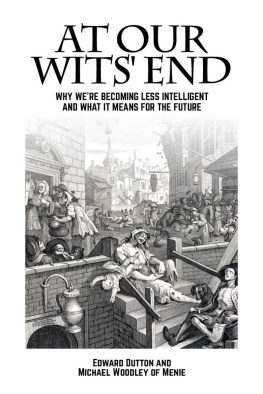

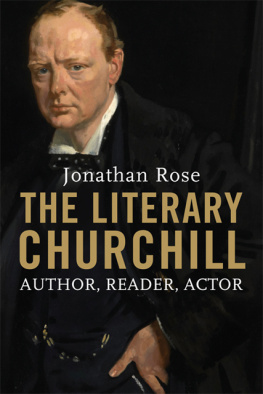



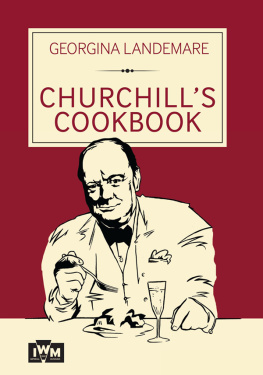
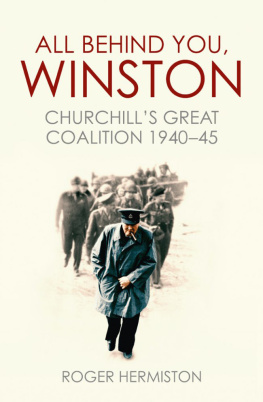


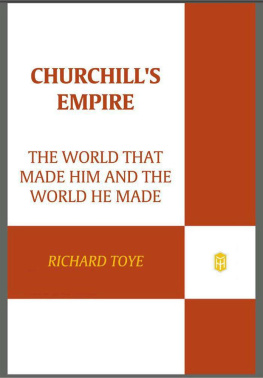



 Churchills Headmaster The Sadist Who Nearly Saved the British Empire Edward Dutton Churchil s Headmaster: The Sadist Who Nearly Saved the British Empire Edward Dutton Manticore Press, Melbourne, Australia, 2019. All rights reserved, no section of this book may be utilized without permission, except brief quotations, including electronic reproductions without the permission of the copyright holders and publisher. Published in Australia. Thema Classification: NH (Histories), 1DDU (Britain) 978-0-6484996-3-3 m a n t i c o r e p r e s s www.manticore.press ... he was, I think, kind-hearted on the whole. Roger Fry, on Churchil s headmaster. In memory of Dr Tony Harvey (1945-2010). Contents List of Illustrations
Churchills Headmaster The Sadist Who Nearly Saved the British Empire Edward Dutton Churchil s Headmaster: The Sadist Who Nearly Saved the British Empire Edward Dutton Manticore Press, Melbourne, Australia, 2019. All rights reserved, no section of this book may be utilized without permission, except brief quotations, including electronic reproductions without the permission of the copyright holders and publisher. Published in Australia. Thema Classification: NH (Histories), 1DDU (Britain) 978-0-6484996-3-3 m a n t i c o r e p r e s s www.manticore.press ... he was, I think, kind-hearted on the whole. Roger Fry, on Churchil s headmaster. In memory of Dr Tony Harvey (1945-2010). Contents List of Illustrations